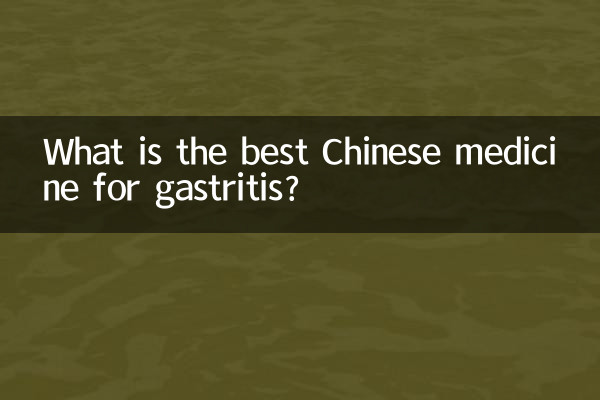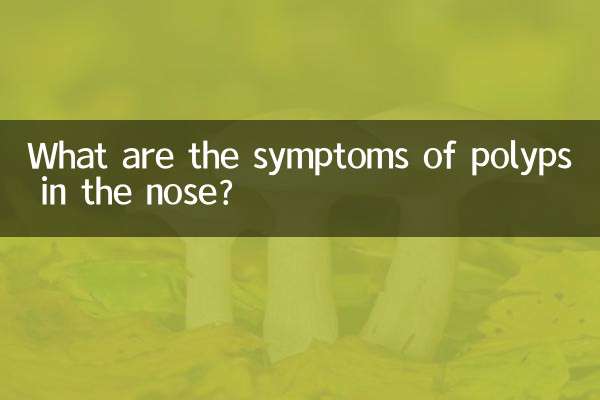What is the best Chinese medicine for gastritis?
In recent years, with the accelerated pace of life and changes in dietary structure, the incidence of gastritis has increased year by year, becoming a health problem that troubles many people. Traditional Chinese medicine has become the first choice for many gastritis patients because of its mild conditioning effect and fewer side effects. This article will combine the hot topics and hot content on the Internet in the past 10 days to introduce in detail the suitable Chinese medicines and their effects for patients with gastritis.
1. Traditional Chinese Medicine classification and symptoms of gastritis

Gastritis is usually divided into the following types in traditional Chinese medicine, and each type has different symptoms and medications:
| Traditional Chinese Medicine Classification | Main symptoms | Recommended Chinese medicine |
|---|---|---|
| Liver and stomach discord type | Epigastric distension and pain, frequent belching, and severe mood swings | Bupleurum, Cyperus rotundus, dried tangerine peel |
| Weak spleen and stomach type | Dull epigastric pain, loss of appetite, fatigue | Codonopsis pilosula, Atractylodes macrocephala, Poria cocos |
| Stomach heat type | Epigastric burning, dry mouth and bitter mouth, constipation | Coptis chinensis, skullcap, gardenia |
| Cold evil invades the stomach type | Cold and pain in the epigastrium, preference for warmth and massage, vomiting of water | Dried ginger, cinnamon, galangal |
2. Recommended popular Chinese medicines
According to recent Internet hot spots and expert recommendations, the following traditional Chinese medicines have attracted much attention in the treatment of gastritis:
| Chinese medicine name | Efficacy | Applicable type | Usage and dosage |
|---|---|---|---|
| dandelion | Clear away heat, detoxify, reduce inflammation and relieve pain | Stomach heat type | 10-15g, boiled in water instead of tea |
| Amomum villosum | Regulating qi, neutralizing dampness and appetizing | Liver and stomach discord type | 3-6g, then decoct and take it |
| yam | Nourish the spleen and stomach, promote body fluids and benefit the lungs | Weak spleen and stomach type | 15-30g, cooked in porridge or decoction. |
| Evodia | Dispersing cold and relieving pain, lowering qi and relieving vomiting | Cold evil invades the stomach type | 3-5g, decoct and take |
3. Traditional Chinese Medicine Compatibility Plan
The effect of a single traditional Chinese medicine is limited, and reasonable combination can significantly improve the efficacy. The following are the compatibility options that have been highly discussed recently:
| Compatibility name | composition | Efficacy | Applicable people |
|---|---|---|---|
| Four Gentlemen Soup | Codonopsis, Atractylodes, Poria, Licorice | Replenishing qi and strengthening the spleen | People with weak spleen and stomach |
| Zuo Jinwan | Coptis chinensis, Evodia rutaviae | Clear liver and purge fire, lower qi and stop vomiting | People with liver-fire invading the stomach |
| Xiangsha Liujunzi Soup | Mu Xiang, Amomum villosum, Four Gentlemen Soup | Strengthen the spleen and stomach, regulate qi and relieve pain | Those with weak spleen and stomach accompanied by qi stagnation |
4. Precautions for use
1.Treatment based on syndrome differentiation: Traditional Chinese medicine to treat gastritis must be selected according to personal constitution and symptom type. Do not blindly follow the trend and use popular medicines.
2.dose control: Some traditional Chinese medicines, such as coptis and evodia, are bitter, cold or pungent. Excessive dosage may harm the stomach, so doctor's advice must be strictly followed.
3.Treatment schedule: Traditional Chinese medicine conditioning usually takes 2-3 months to take effect. Patients need to be patient and avoid frequent changes in regimens.
4.Diet coordination: During medication, spicy, cold and greasy food should be avoided to avoid affecting the efficacy of the medication.
5. Latest research progress
A recent study published in the Journal of Traditional Chinese Medicine showed thatCoptis chinensis combined with Magnolia officinalisThe effective rate in treating Helicobacter pylori-related gastritis can reach 82.3%, which is significantly higher than the simple Western medicine treatment group. Another clinical observation found thatDandelion extractIt can effectively relieve inflammation of the gastric mucosa. Its effect is equivalent to that of common gastric medicines but with fewer side effects.
With the deepening of modern research, more and more gastritis treatment mechanisms of traditional Chinese medicine have been clarified. For example, the volatile oil component in amomum villosum has been proven to regulate gastrointestinal motility, and yam polysaccharide has been proven to have a protective effect on the gastric mucosa.
Conclusion
Traditional Chinese medicine has unique advantages in treating gastritis, but it needs to be selected appropriately based on individual circumstances. It is recommended that patients develop a personalized plan under the guidance of a professional Chinese medicine practitioner and combine it with lifestyle adjustments to achieve the best results. Remember, there is no "best" Chinese medicine, only the most suitable medication regimen.

check the details

check the details